Hummingbirds are from the Trochilidae family of birds. They are the smallest species of birds in the world. Hummingbirds play a crucial role in our ecosystem. They are primary pollinators and are relied on to pollinate different flowering plants, especially where other pollinators struggle to do so. The best way to support these small birds is to plant various native nectar plants. However, placing hummingbird feeders in your garden can be an easy way to attract these small, brightly colored birds whilst providing local and migrating hummingbird populations with a nourishing food source.
Hummingbirds are called nectivores. This is because most of their diet consists of the nectar from flowers. They also enjoy snacking on different insects. Hummingbirds need to consume many calories because they have a fast metabolism. Their high heart rate and small body size contribute to the speed of their metabolism. A typical hummingbird consumes half its weight in sugar every day, and on average, it needs a meal every fifteen minutes. However, there are some ingredients you should avoid adding to your hummingbird feeders. Let’s explore the nine foods you should never feed hummingbirds.
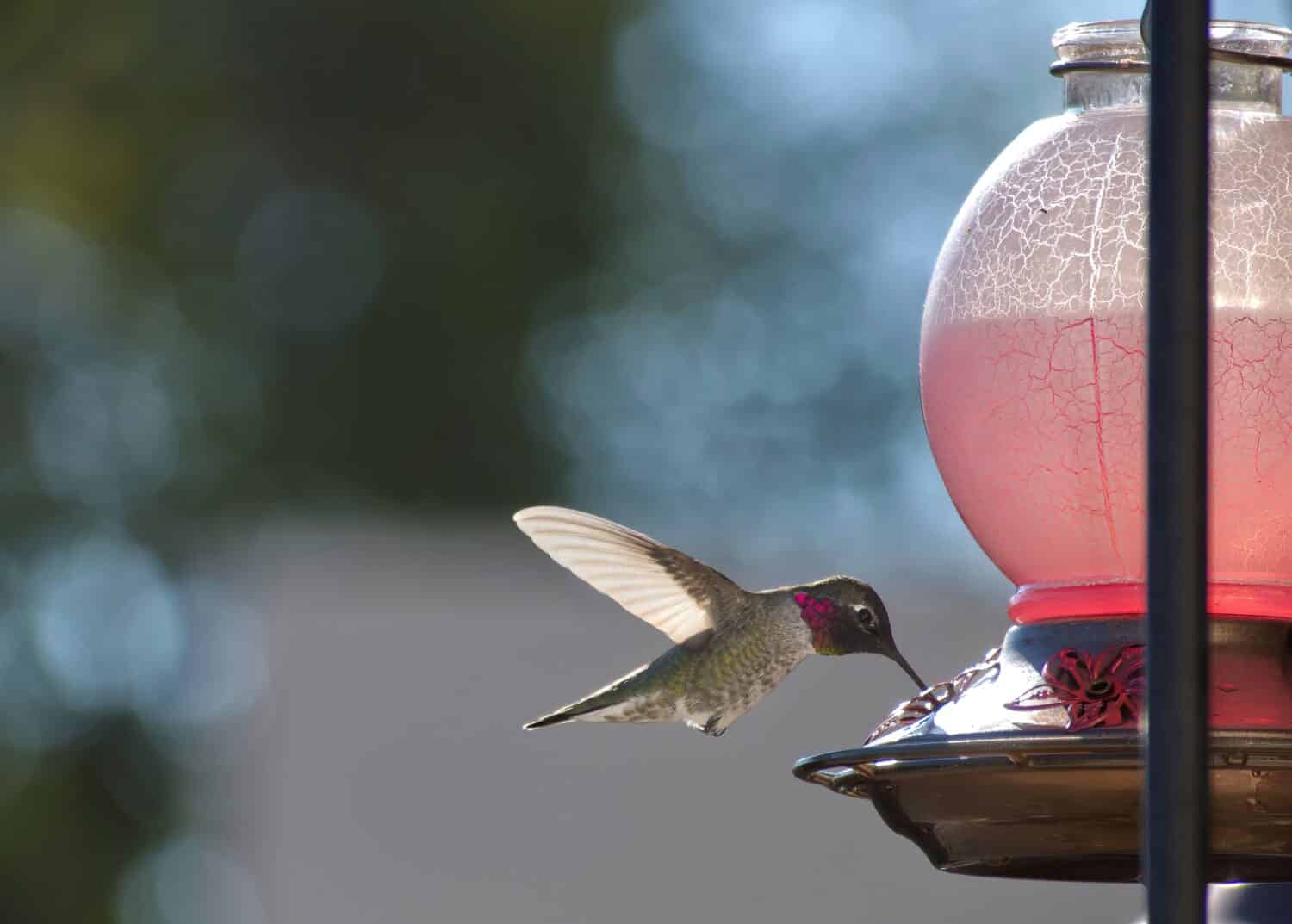
Hummingbirds have large appetites and need to process their food fast.
©Leonard Provoid/Shutterstock.com
1. Honey
Avoid feeding hummingbirds honey, especially when the honey has been diluted with water. Honey goes off quickly when diluted in water and supports the growth of dangerous bacteria and fungi, like mold, in the hummingbird feeder. When consumed, it can cause a lethal fungus infection to grow on the tongue of the hummingbird. The fungus can cause the hummingbird’s tongue to swell, making it very difficult for the bird to eat, and it will eventually die of starvation. Regular honey and even raw, unprocessed honey, without any additives or preservatives, can be deadly to hummingbirds.
Honey has a high sugar content and can ferment and turn into alcohol in the feeder. Fermented foods are harmful to hummingbirds. When eaten, it can make these small birds drunk and vulnerable, and they could possibly die.
Honey also does not provide the right balance of nutrients for hummingbirds, such as floral nectar does. Another reason not to provide hummingbirds with honey is that it is sticky. It can form a glue-like substance, making it very difficult for these birds to continue eating after it gets stuck on their tongues and bills. Sticky honey on feathers can inhibit flight and prevent the hummingbirds from reaching life-sustaining nectar, leading to undernourishment. Honey also has high acidity levels, which can cause discomfort and problems within the hummingbird’s digestive system.
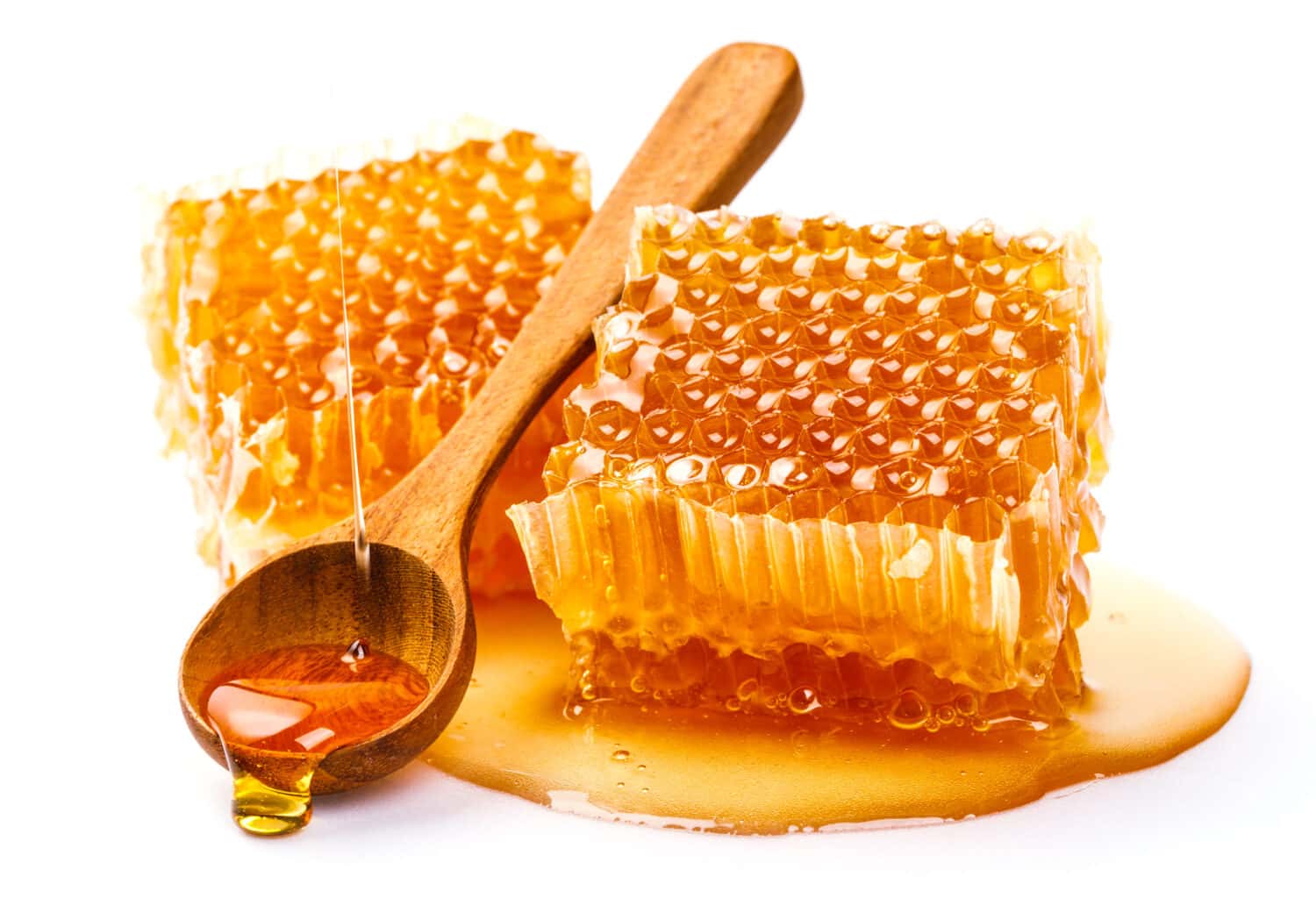
Hummingbirds are not able to digest honey that easily. This results in less energy and nutritional value for the hummingbirds.
©DONOT6_STUDIO/Shutterstock.com
2. Molasses
You should never feed hummingbirds molasses. Molasses has a high iron content and should not be fed to hummingbirds, because they do not handle iron very well. Generally, hummingbirds follow a low iron diet as they are primarily nectarivorous. They are unable to sufficiently decrease iron absorption when they have sufficient body stores. Consuming too much dietary iron can lead to the accumulation of iron in their bodies, especially in the liver and intestines. This happens over a period of time. Iron toxicosis causes several health issues for hummingbirds, including organ damage, and can even lead to their death.
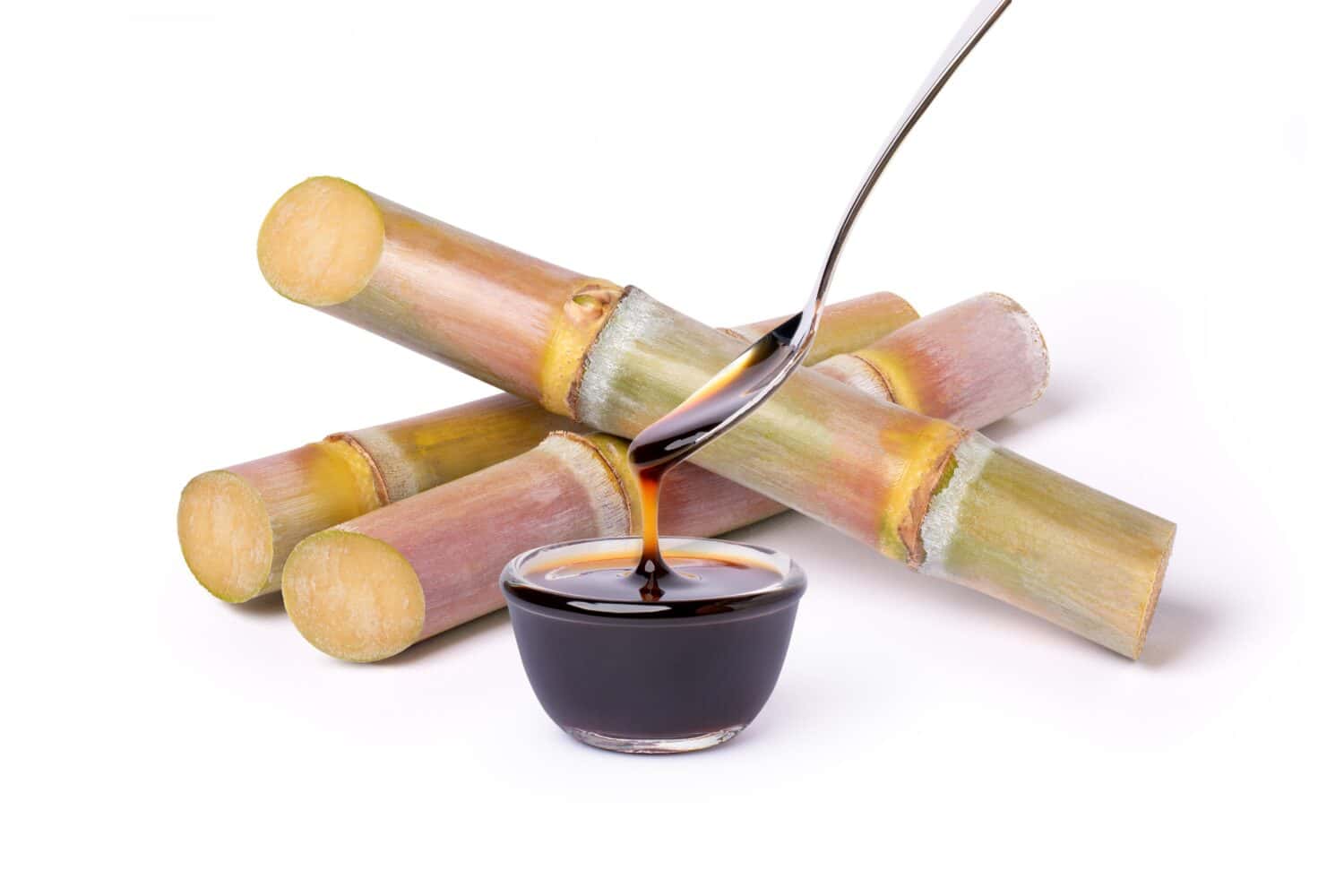
Molasses is a thick, dark syrup and is made during sugar production when the sugar cane is refined.
©NIKCOA/Shutterstock.com
3. Brown Sugar
Both dark brown sugar and light brown sugar should not be fed to hummingbirds. This is because they contain molasses. Molasses has a high iron content, which is deadly to hummingbirds in high amounts. Brown sugar is also a lot denser and heavier than white sugar, which makes it more difficult to digest, leading to digestive issues and discomfort for hummingbirds. Brown sugar can also promote the growth of mold, which is not good for hummingbirds. Consuming too much mold can be lethal for these small birds.
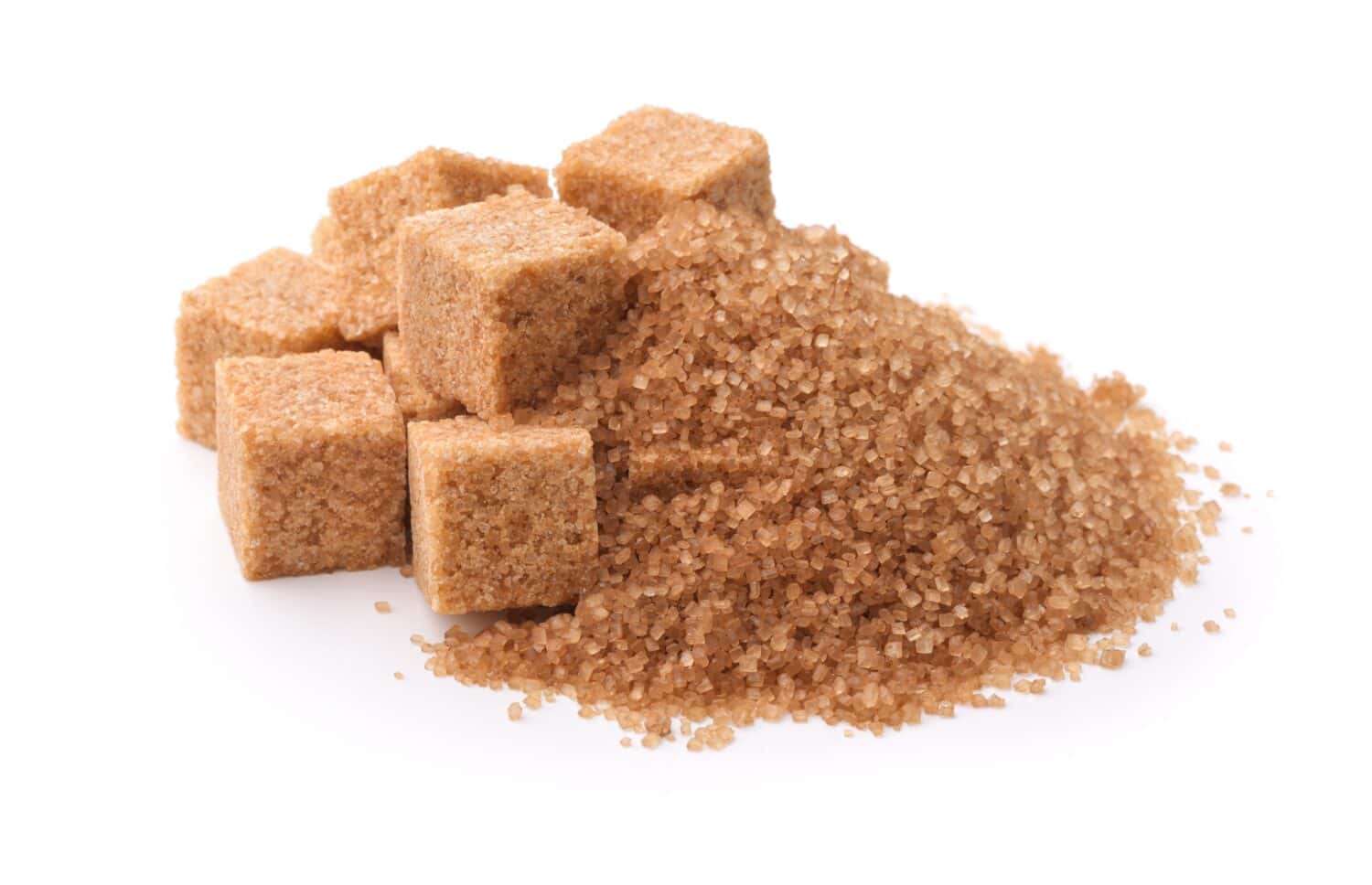
The presence of molasses is what gives brown sugar its color and taste.
©Anton Starikov/Shutterstock.com
4. Raw Sugar
You should never feed hummingbirds raw sugar. Raw sugar is lighter than brown sugar as it contains less molasses. The sugar crystals are also bigger than brown sugar. This type of sugar also tends to hold additional impurities and minerals. These minerals and impurities can be poisonous for hummingbirds, as they are unable to digest many minerals. Even though raw sugar contains less molasses, the amount contained is still harmful to hummingbirds. This is because hummingbirds are susceptible to excess dietary iron buildup in their system.
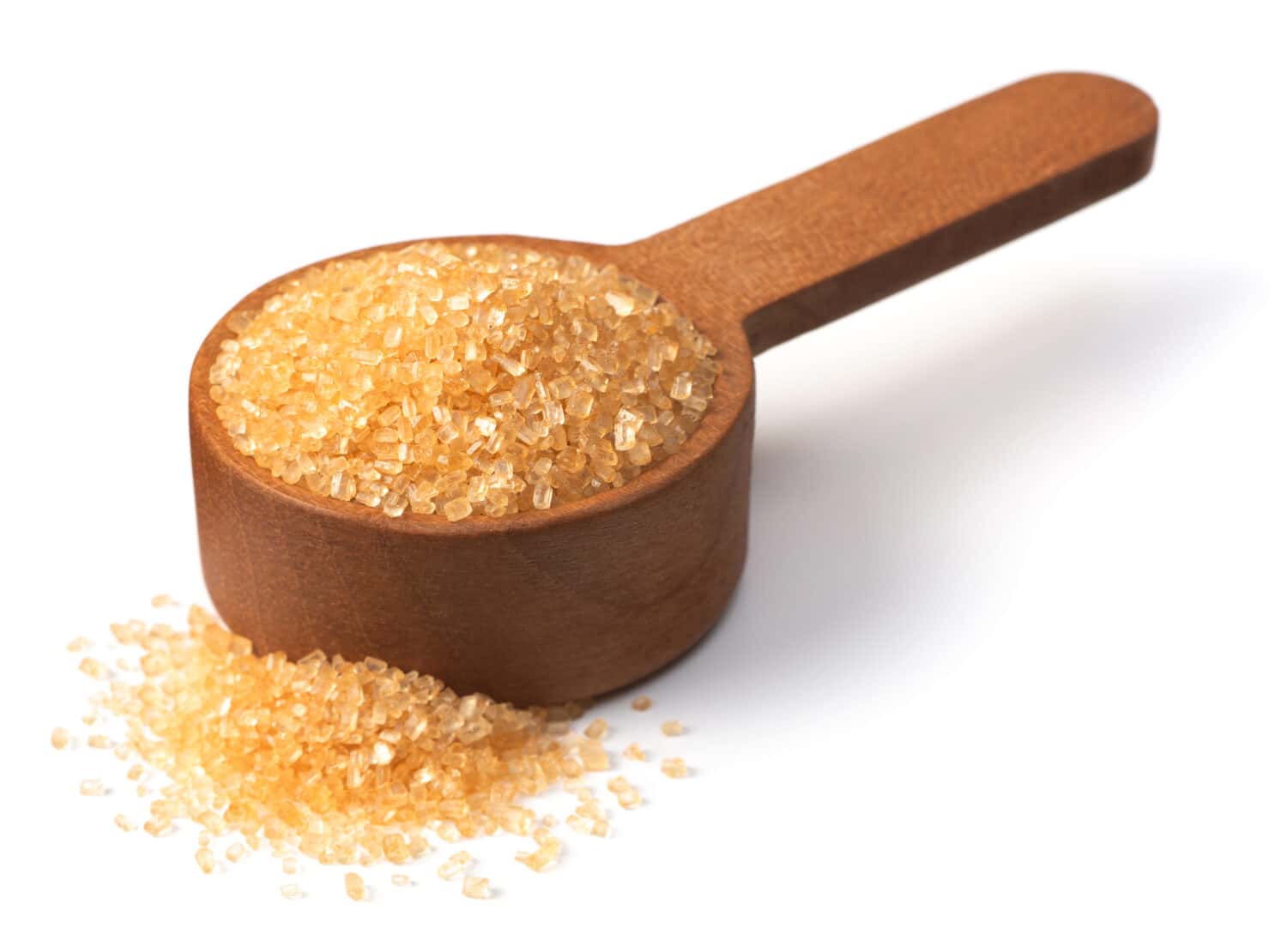
Raw sugar’s distinctive and unique flavor is due to the mineral and acid contaminates from the sap that it came from.
©AmyLv/Shutterstock.com
5. Artificial Sweeteners
We want to avoid giving hummingbirds artificial sweeteners, as these sugar substitutes lack the energy hummingbirds need to be fast-moving or stay in the same position in the air. Artificial sweeteners can provide the sweet taste hummingbirds are naturally used to, but they can’t provide the energy they need, making them feel tired and lethargic. These sugar substitutes might also impact how their organs function by slowing them down. Artificial sweeteners tend to contain additional unfavorable ingredients, which can be harmful and cause health issues in these small birds. The severity of symptoms depends on how much the hummingbirds took in. Hummingbirds are unable to digest and handle artificial sweeteners like we can.
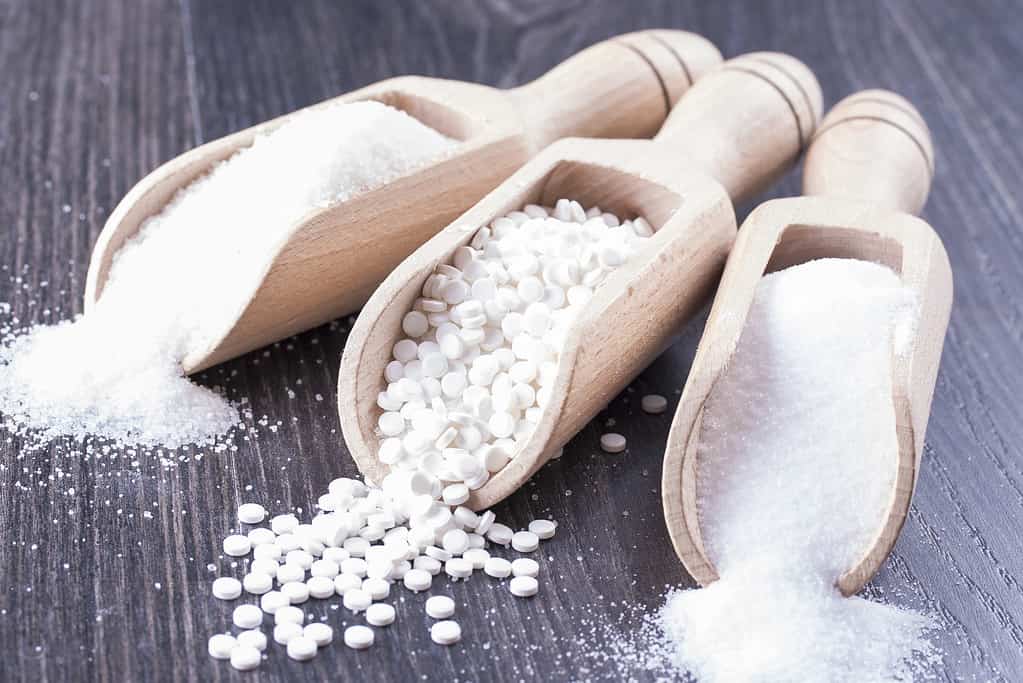
Diet sodas contain artificial sweeteners.
©MamaMiaPL/iStock via Getty Images
6. Artificial Food Coloring
You should never feed hummingbirds artificial food coloring. Red food dye is often used to attract hummingbirds as an additive in their nectar. However, the use of colored nectar is unnatural and unnecessary. Artificial food coloring contains harmful chemicals. The chemicals, specifically in red food dye, can cause tumors of the bill and liver. Red food coloring can also impact the functioning of the kidneys of hummingbirds. It is best to avoid all types of artificial coloring.
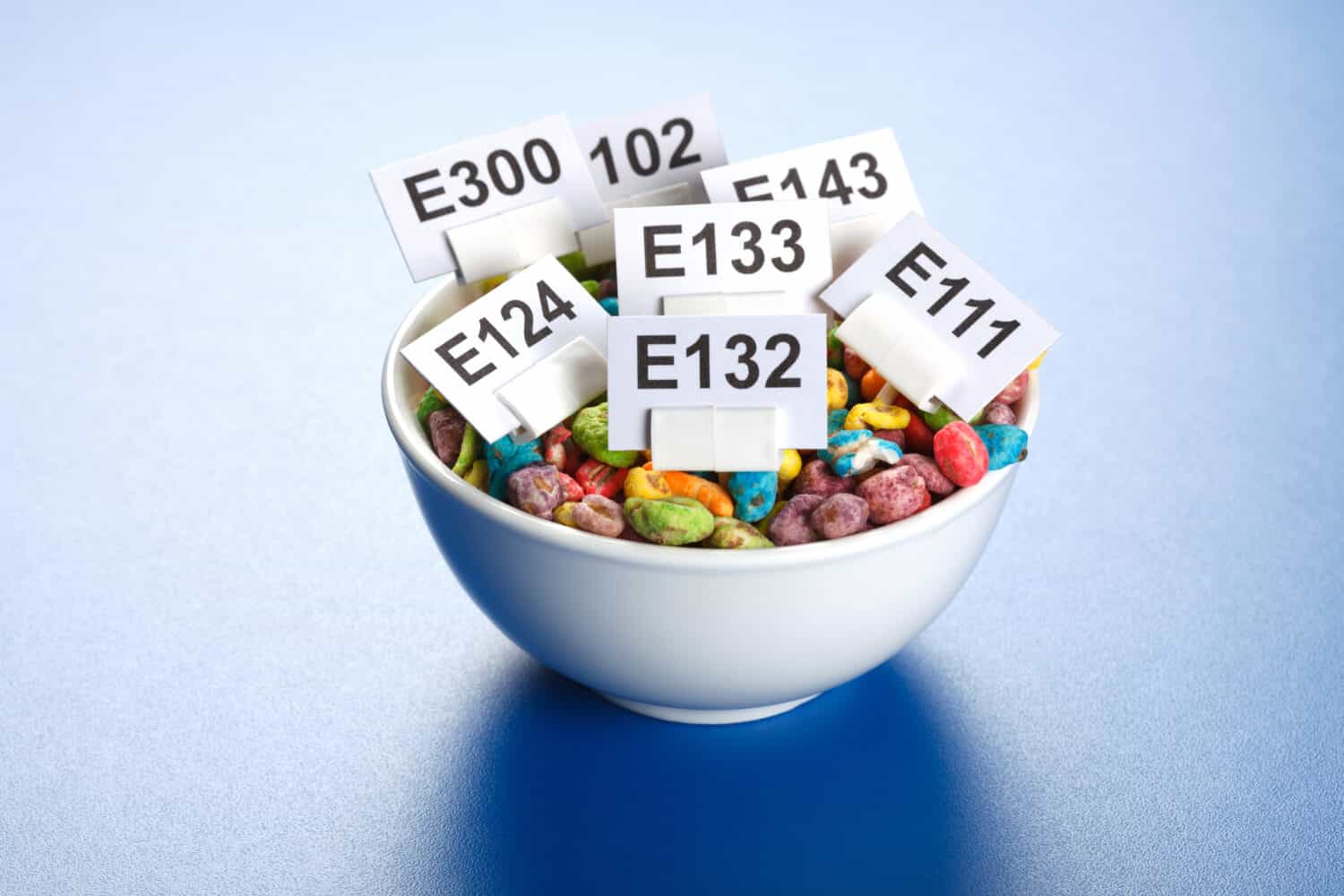
Hummingbirds have a heightened sensitivity to the colors red and yellow, although they are drawn to many more colors.
©Szasz-Fabian Ilka Erika/Shutterstock.com
7. Fruit Juice
There are several reasons why it is not ideal to give fruit juice to hummingbirds. One reason is that some packaged fruit juices may contain artificial sweeteners and additives, such as preservatives, flavorants, and colorants, which can be harmful to these birds. Fruit juice tends to also be too acidic for hummingbirds. Natural or freshly juiced fruit juices are not a good alternative. They tend to go bad and ferment quickly, which can lead to bacterial growth and possibly cause illness in hummingbirds.
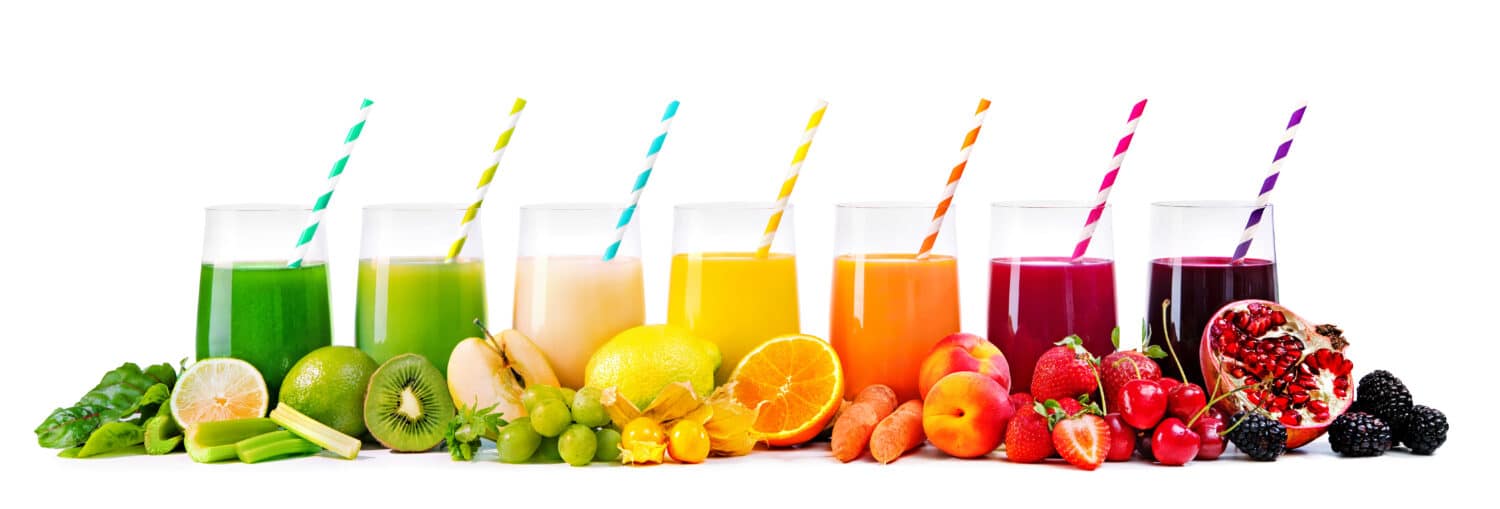
Packaged fruit juice that is not 100% pure may contain added sugars, sweeteners, preservatives, flavorings, or colorings.
©Alexander Raths/Shutterstock.com
8. Powdered Sugar
Powdered sugar should not be fed to hummingbirds because it consists of refined sugar. Refined sugar does not contain any of the important nutrients that hummingbirds need, such as potassium, phosphorus, and calcium. Powdered sugar contains an anti-caking agent called corn starch. Corn starch can cause the powdered sugar mixture to ferment quickly, which can cause harm to the hummingbirds.
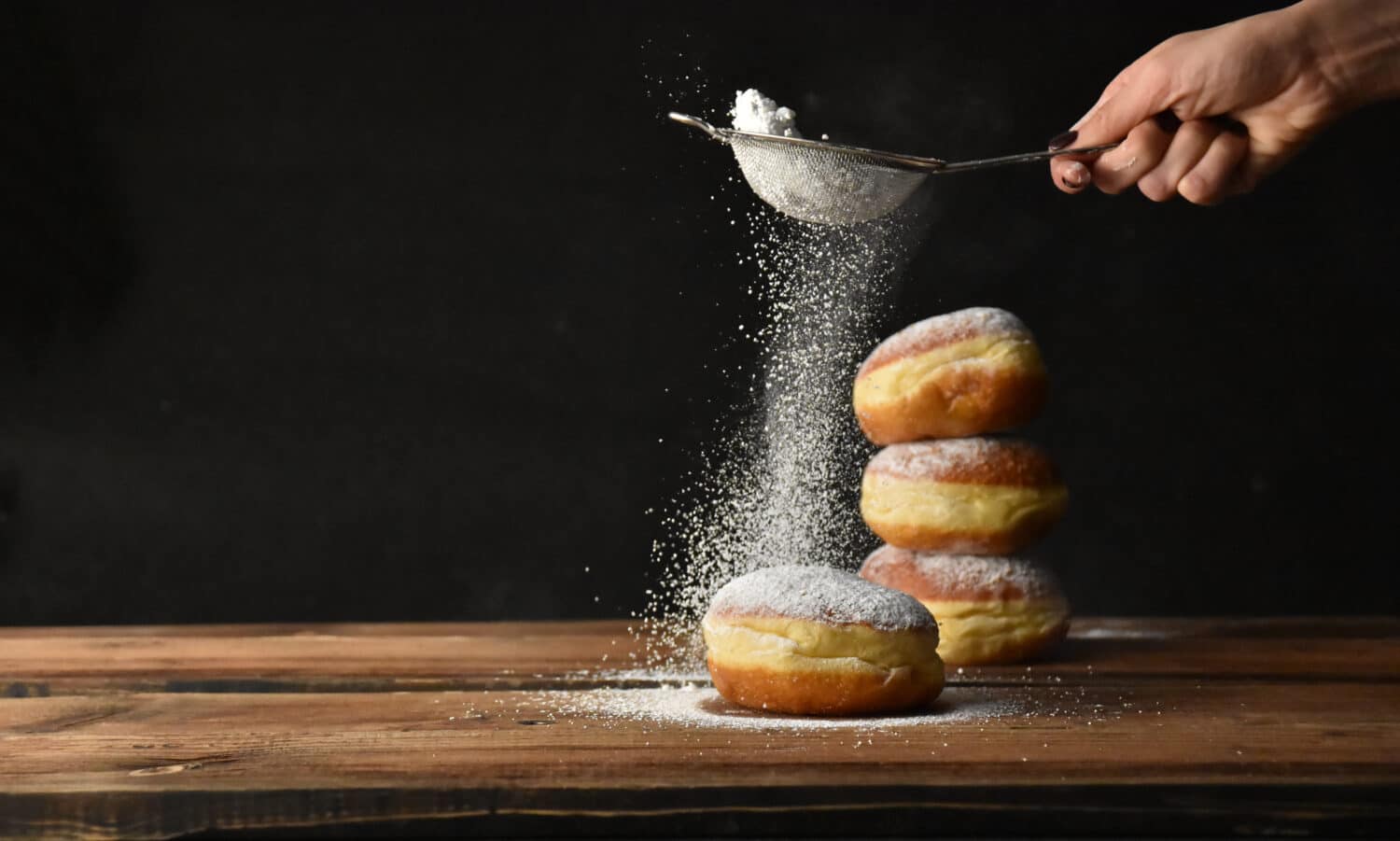
Powdered sugar is also known as confectioner’s sugar.
©VB production/Shutterstock.com
9. Syrups
Syrups such as agave syrup, corn syrup, golden syrup, maple syrup, or any other types of syrups should ideally not be given to hummingbirds. Even if diluted in water, any type of syrup is unsafe for hummingbirds to consume. This is because they have a very high sugar content and contain several toxic ingredients, such as artificial food coloring and several artificial preservatives. These ingredients may show immediate adverse effects or accumulate in the hummingbird’s system and become deadly over time. Also, syrups are often highly processed, and hummingbirds may have a hard time digesting them. That can lead to digestive discomfort and sickness in hummingbirds.
Take into consideration what foods you should never feed hummingbirds, as this can have a direct impact on their health and well-being. Aim to not only create an inviting atmosphere for these extraordinary birds but also to make sure their feeding station is nutritious. White sugar is the closest sugar to the sugars found in nature. Stick to a straightforward homemade nectar recipe of sugar and water, and the hummingbirds in your garden will be happy and stay healthy.
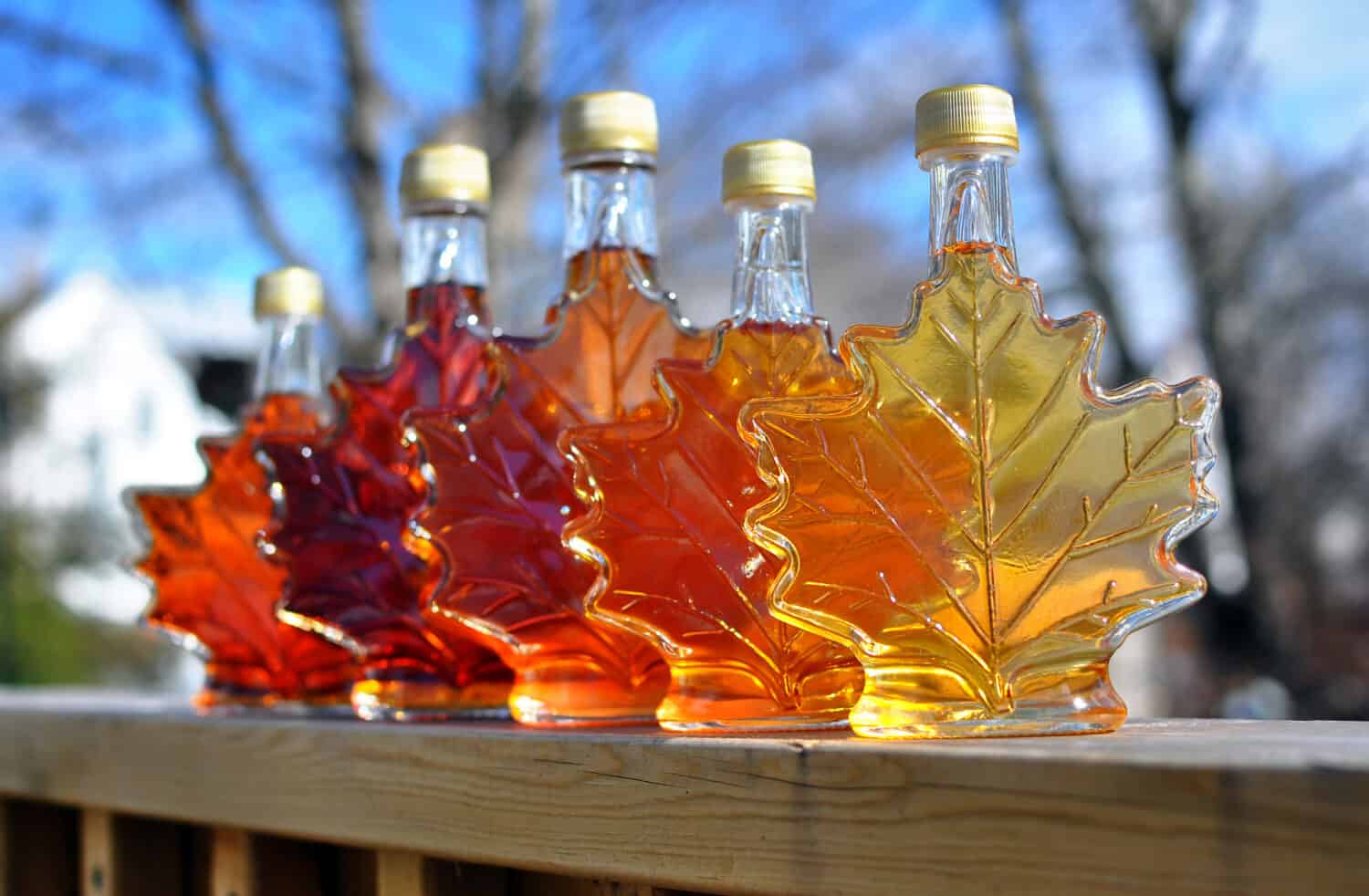
There are more than 35 different types of syrups.
©Cindy Creighton/Shutterstock.com
Summary of the 9 Foods You Should Never Feed Hummingbirds
| Number | Food Item |
|---|---|
| #1 | Honey |
| #2 | Molasses |
| #3 | Brown Sugar |
| #4 | Raw Sugar |
| #5 | Artificial Sweeteners |
| #6 | Artificial Food Coloring |
| #7 | Fruit Juice |
| #8 | Powdered Sugar |
| #9 | Syrups |
The photo featured at the top of this post is © Randall Vermillion/Shutterstock.com
Thank you for reading! Have some feedback for us? Contact the AZ Animals editorial team.







